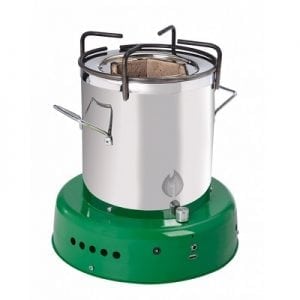
Agriculture
November 30, 2024
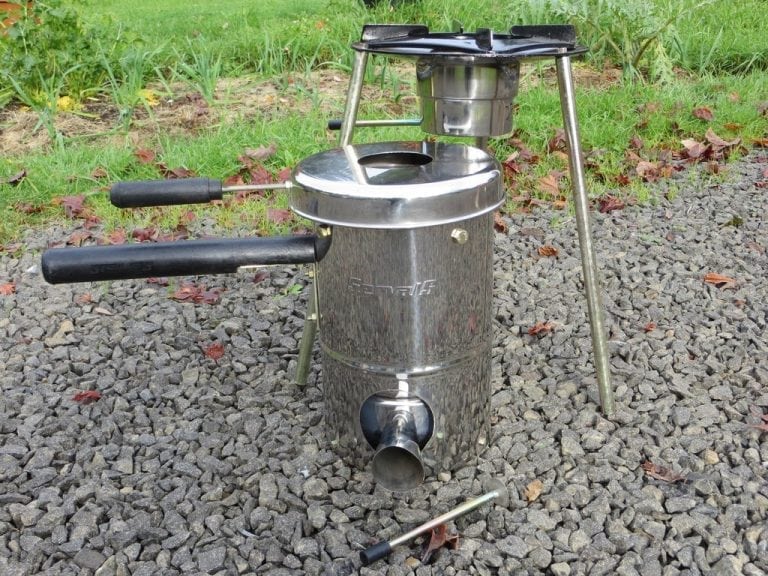
Updated on November 30, 2024
·Created on July 3, 2016
Designed by Dr. Paul Anderson, the TLUD Champion is a top-lit updraft and batch-loading stove that can be self-constructed.
The TLUD Champion is a batch-loading, top-lit updraft stove originally designed in 2005 by Dr. Paul Anderson. Due to open source design and ease of local manufacturing, different versions of the TLUD champion are used in several countries. Four versions detailed by Dr. Anderson include a refugee stove which can be constructed using minimal tools and recycled materials found in refugee camps. The TLUD Champion can be scaled up based on demand and can operate with a variety of dry, solid biomass. In addition to cooking, the stove produces charcoal (biochar) as a byproduct and can create an economic opportunity for the user. TLUD Champion charcoal buyback programs have been successful in India.
Introduction video about the TLUD champion is available.
Target SDGs
SDG 7: Affordable and Clean Energy
SDG 3: Good Health and Well-Being
Market Suggested Retail Price
$160.00
Target Users (Target Impact Group)
Household
Distributors / Implementing Organizations
SeaChar and Atmosfair.
Competitive Landscape
Countries
India
Manufacturing/Building Method
An overview of manufacturing and building methods can be found in Dr. Anderson's construction plans.
Intellectural Property Type
Open-source
User Provision Model
Users could obtain a stainless steel version of the TLUD Champion from Servals (for 2018, discontinued) or SeaChar. Users can also self-construct the stove following the open source construction guide and fabricate the stove with minimal tools and local recycled materials.
Distributions to Date Status
As of 2014, over 16,000 TLUD Champions have been distributed through a gold standard carbon offset program by Atmosfair in India.
Fuel type
Any dry, solid biomass (must be in pellets)
Pot type
Both
Thermal efficiency (%)
Unknown
PM emissions (g/MJ delivered to pot)
unknown
CO emissions (g/MJ delivered to pot)
Unknown
Time to boil (min/L)
19
Design Specifications
Design specifications include a cone-shaped controller for regulation of primary air, a riser that provides draft and directs flame to the pot, protects against wind and provides space for complete combustion; double-walled fuel canisters, second fuel canister available to extend cooking time once the first fuel load is finished; removable concentrator lid, tripod stand with pot rests and telescopic riser that can slide down and couple with the concentrator lid. The height of the stove is 280 mm and width 200 mm. The fuel container weighs 1.6 kgs.
TLUD stoves can accept a variety of dry, woody biomass as fuel. See the GIZ 2013 publication on Micro-gasification for a thorough analysis of appropriate fuels.
Full design specifications can be found in a video (see references).
Technical Support
Full instructions on how to construct the stove here and instructional video also available (see references).
Replacement Components
Not specified. The inner fuel cylinder can be replaced as needed by the user.
Lifecycle
Unknown.
Manufacturer Specified Performance Parameters
According to Servals:
Vetted Performance Status
From the GIZ 2013 publication on Micro-Gasification:
Burn time for one batch of fuel depending on the type of fuel: over 75 minutes on 1,000 g of wood pellets or 45 minutes on 600 g of wood chips. It boiled 5 l of water without a pot-lid from 11°C in 19 minutes with 384 g of wood pellets or in 20 minutes with 368 g of wood chips at the Aprovecho Research Institute in February 2010.
In an effort to standardize cookstove performance an International Workshop Agreement (IWA) was established in 2012. The IWA created tiers of cookstove performance in order to communicate technical information more easily to the government, donors, investors, and consumers when making decisions. However, many manufacturers have not tested stoves using the newly adopted IWA performance metrics. See the Global Alliance for Clean Cookstoves for more information. The full IWA document can be viewed here.Safety
Not specified. Wooden handles are featured on both the fuel canister and concentrator lid to prevent user contact with heated materials. Standard precautions should be exercised when handling any heated cooking device.
Complementary Technical Systems
An optional external fan can be used to turn the Champion into a forced-air gasifier. Optional charcoal burning accessory can be added for simmering with the created char.
Academic Research and References
Anderson, P (2016). Origins, History, and Future of TLUD Micro-gasification and Cookstove Advancement. Version 2.0.
Roth, Christa, Paul Anderson, Hugh McLaughlin, Thayer Thomlinson, and Kelpie Wilson. 2014. Micro-Gasification: Cooking with Gas from Dry Biomass. Edited by Heike Volkmer. www.bmw.de. Eschborn, Germany : Deutsche Gesellschaft für Internationale Zusammenarbeit (GIZ) GmbH.
SeaChar. n.d. www.facebook.com.
What Is Atmosfair? n.d. Atmosfair.
Global Alliance for Clean Cookstoves. 2015. Clean Cookstoves and Fuels: A Catalog of Carbon Offset Projects and Advisory Service Providers (2nd Edition). Cleancooking.org. Global Alliance for Clean Cookstoves.
TLUD Champion Gasifier Cookstove. 2011. www.youtube.com.
TLUD Gasifier Cookstove. 2008. www.youtube.com.
Global Alliance for Clean Cookstoves. 2013. Interim Reporting Requirements for IWA Tiers of Performance. cleancooking.org. Global Alliance for Clean Cookstoves.
International Standards Organization (ISO). 2012. Foreward ISO – International Workshop Agreement IWA 10. Cleancooking.org. ISO, Partnership for Clean Indoor Air (PCIA), Global Alliance for Clean Cookstoves.
Govt. Of India – Ministry of Micro, Small & Medium Enterprises, MSME-Testing Centre. n.d. rtcer.gov.in.
Evaluation methods
A flue gas analyzer with MRU NOVA 2000 chemical sensor was used to evaluate the stove. Combustion efficiency tests used were lines C1 11.2.1 and procedure B1.2.2 of the Indian Standards for Solid Biomass Specification.
Other Information
None.

Agriculture
November 30, 2024
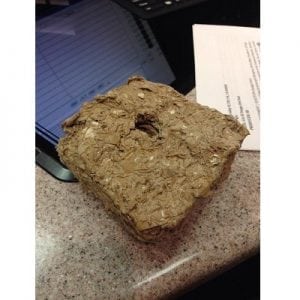
Agriculture
November 30, 2024
Implemented by
El Fuego del Sol
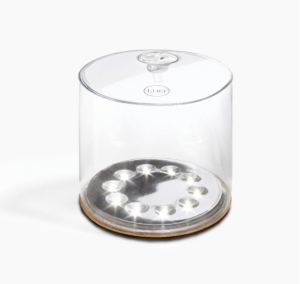
Agriculture
December 16, 2024
Implemented by
MPOWERD
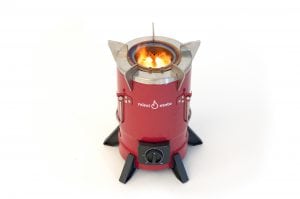
Agriculture
November 30, 2024
Implemented by
Mimi Moto
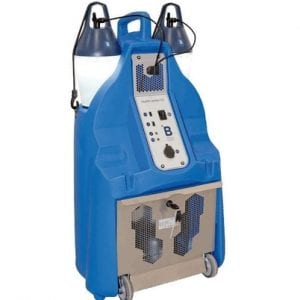
Agriculture
December 30, 2023
Implemented by
B Medical Systems
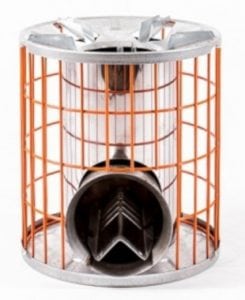
Agriculture
December 3, 2024
Implemented by
Rocket Works
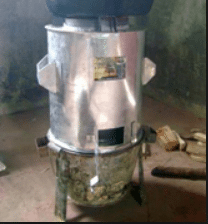
Agriculture
December 28, 2023
Implemented by
Wisdom Stoves
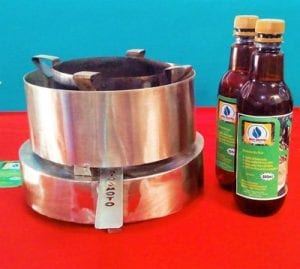
Agriculture
November 12, 2024
Implemented by
International Research & Development Africa Ltd
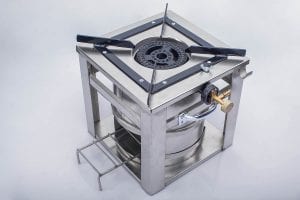
Agriculture
December 27, 2023
Implemented by
F & M Industries Ltd.
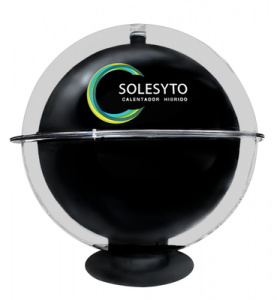
Agriculture
January 28, 2024
Implemented by
Energryn

Agriculture
November 30, 2024

Agriculture
November 30, 2024
Implemented by
El Fuego del Sol

Agriculture
December 16, 2024
Implemented by
MPOWERD

Agriculture
November 30, 2024
Implemented by
Mimi Moto

Agriculture
December 30, 2023
Implemented by
B Medical Systems

Agriculture
December 3, 2024
Implemented by
Rocket Works

Agriculture
December 28, 2023
Implemented by
Wisdom Stoves

Agriculture
November 12, 2024
Implemented by
International Research & Development Africa Ltd

Agriculture
December 27, 2023
Implemented by
F & M Industries Ltd.

Agriculture
January 28, 2024
Implemented by
Energryn

Agriculture
November 30, 2024

Agriculture
November 30, 2024
Implemented by
El Fuego del Sol

Agriculture
December 16, 2024
Implemented by
MPOWERD

Agriculture
November 30, 2024
Implemented by
Mimi Moto

Agriculture
December 30, 2023
Implemented by
B Medical Systems

Agriculture
December 3, 2024
Implemented by
Rocket Works

Agriculture
December 28, 2023
Implemented by
Wisdom Stoves

Agriculture
November 12, 2024
Implemented by
International Research & Development Africa Ltd

Agriculture
December 27, 2023
Implemented by
F & M Industries Ltd.

Agriculture
January 28, 2024
Implemented by
Energryn
Have thoughts on how we can improve?
Give Us FeedbackNotifications
Nice, thorough description.